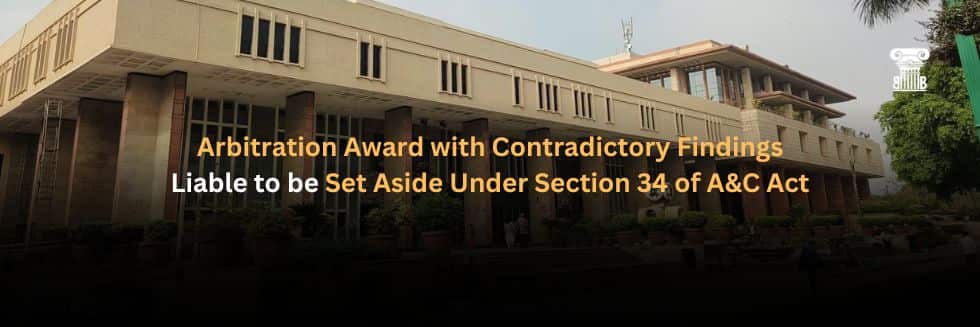CASE DETAILS:
NHAI v. M/s Ssangyong Engineering & Construction Co. Ltd
OMP(COMM) 340/2021
Delhi High Court
Coram: Justice Chandra Dhari Singh
BACKGROUND:
- The matter revolves around a contract between the National Highway Authority of India (NHAI) and Ssangyong Engineering for the construction of a highway in Madhya Pradesh.
- After Ssangyong Engineering won the bid, a letter of award was issued on December 30, 2005, followed by a formal agreement dated April 12, 2006.
- This agreement included provisions for dispute resolution through arbitration (Clause 67) and outlined the payment process including monthly payments via Interim Payment Certificates (IPCs) (Clause 60.1). The agreement also granted the Engineer the authority to revise IPCs in case of errors (Clause 60.9) and specified conditions for issuing a ‘Taking Over Certificate’ (Clause 48.1) and a ‘Defect Liability Certificate’ (Clause 62.1).
- As per the contract, the Engineer issued a Taking Over Certificate on April 6, 2013 and a Defect Liability Certificate on April 4, 2014.
- Following this, Ssangyong Engineering submitted a Draft Final Statement claiming a significant amount as due payment.
- However, the Engineer approved only a partial payment through a certificate dated August 31, 2014, leading to a dispute between the parties. Y
- Ssangyong Engineering invoked arbitration wherein NHAI contested the nature of the certificate and the amount awarded arguing that the August 31, 2014 certificate was merely an IPC and not a Final Payment Certificate as claimed by Ssangyong Engineering.
- Despite NHAI’s contentions, the arbitral tribunal ruled in favour of Ssangyong Engineering considering the August 31, 2014 certificate as a Final Payment Certificate and awarding the claimed amount.
- Aggrieved by the tribunal’s decision, NHAI challenged it under Section 34 of the Act disputing both the classification of the certificate and the awarded amount.
OBSERVATIONS:
The Court emphasized the narrow scope of its interference under Section 34 of the Act stating that an award can only be set aside if specific grounds mentioned therein are met. Notably, since the respondent is a foreign entity and the award was passed in an International Commercial Arbitration, it cannot be challenged on the grounds of ‘Patent Illegality’.
Examining the agreement, the Court noted that a final payment certificate could only be issued after the contractor had provided a written discharge and not while a dispute regarding the amount due under the agreement was pending. The tribunal’s contradictory finding regarding the issuance of the certificate dated August 31, 2014, raised concerns, as it initially noted the absence of a mandatory written discharge but later deemed the certificate final due to the absence of a dispute between the Engineer and the respondent regarding the amount. Such contradictory findings rendered the award suspect under Section 34 of the Act as per the Court’s observation.
The Court further pointed out the petitioner’s challenges regarding the engineer’s incorrect application of the price formula and errors in the respondent’s submitted materials, work quantity and variation items which the tribunal failed to address. Non-adjudication on such critical issues by the arbitral tribunal according to the Court violated principles of natural justice and could render the award opposed to public policy warranting its setting aside under Section 34 of the Act.
Additionally, the Court noted a discrepancy in the tribunal’s findings regarding the finality of the certificate dated August 31, 2014 in a dispute under a different package agreement but within the same tender contract. Referring to the judgment in NHAI v. Progressive-MVR JV, the Court highlighted the need for consistency in the tribunal’s decisions on identical issues involving the same parties and under the same agreement. Thus, the Court concluded that the award should be set aside to rectify such anomalies and ensure justice. Consequently, the Court granted the petition and set aside the award.
JUDGEMENT:
The Delhi High Court ruled that an arbitration award wherein the tribunal’s findings contradicted its observations falls under the purview of ‘Public Policy’ as outlined in Section 34 of the Act. Justice Chandra Dhari Singh’s bench also determined that when an arbitral tribunal issues conflicting awards on identical issues involving the same parties and contractual conditions, the Court must set aside the award in such an anomalous scenario.






